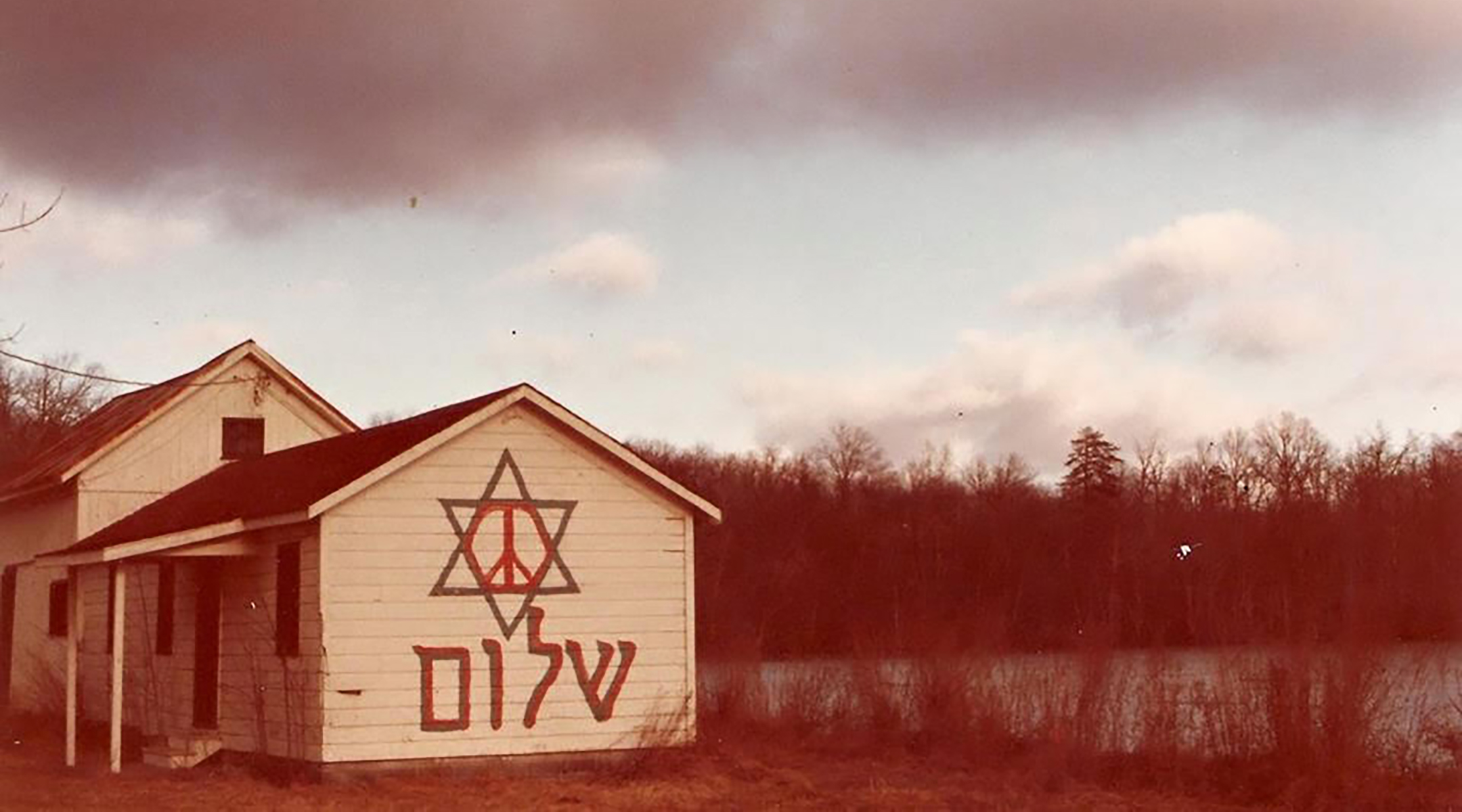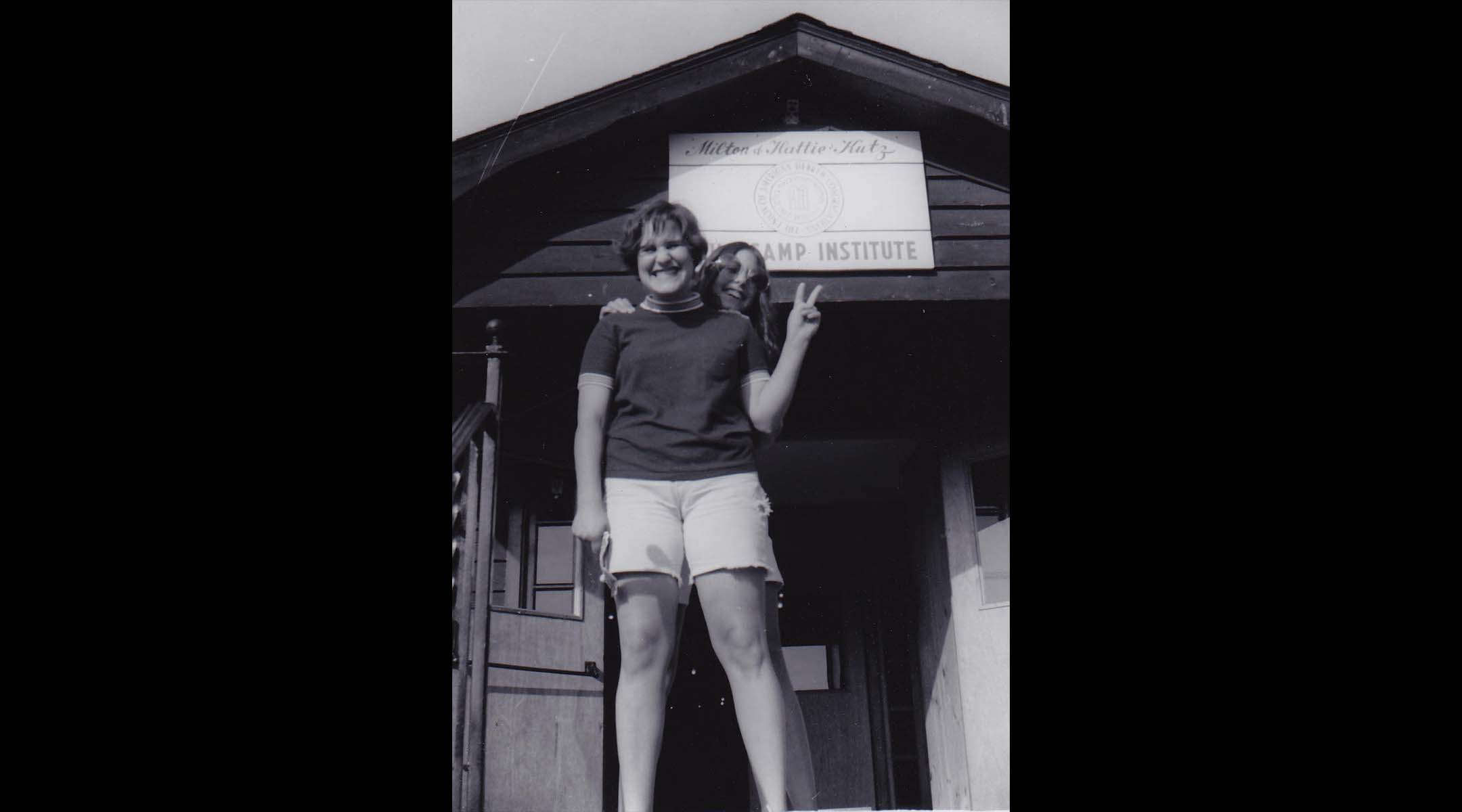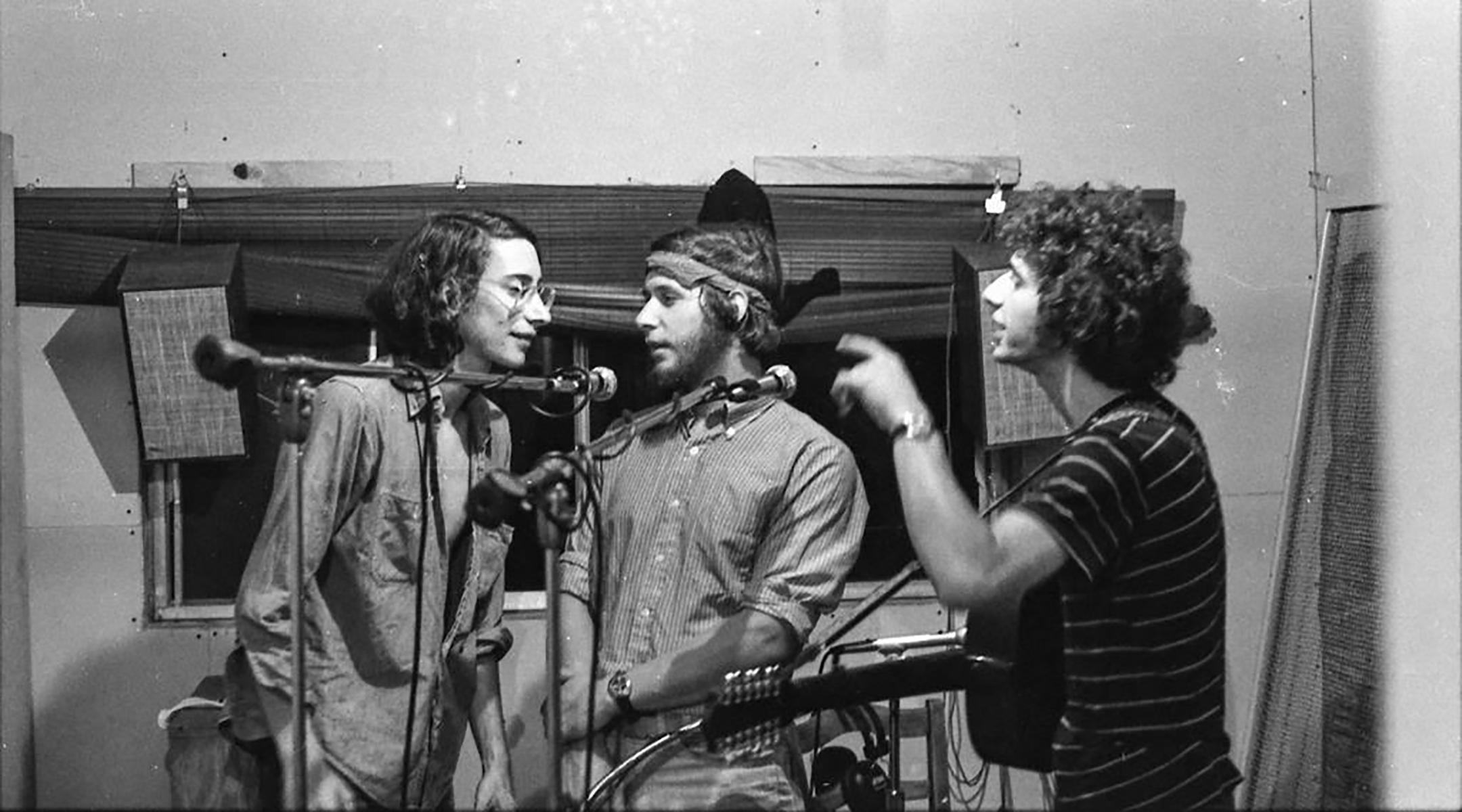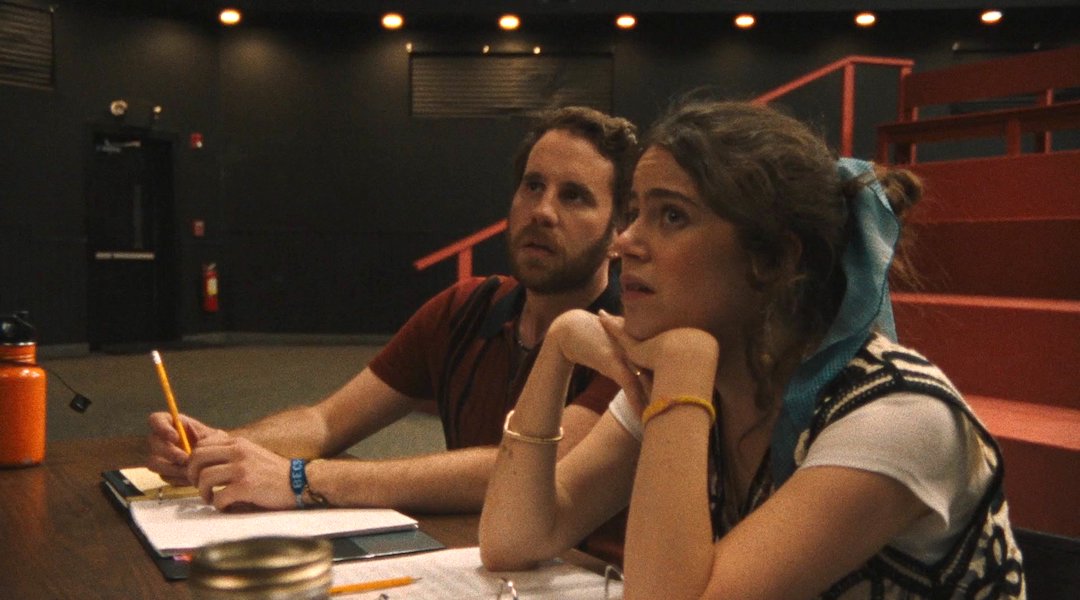(JTA) — In January, 25 alumni of the Union for Reform Judaism’s Kutz Camp gathered on their former campus. Although the historic summer camp known for fostering Reform leadership and leaving a mark on modern Jewish music had shuttered in 2019, the alumni were back for a preview screening of “Theater Camp,” a comedy film from Jewish co-creators Ben Platt, Molly Gordon and Noah Galvin filmed on Kutz Camp’s grounds in Warwick, New York.
The mockumentary centers on a fictional upstate musical arts camp, AdirondACTS, that is striving to fend off foreclosure after its founder Joan (Amy Sedaris) falls into a strobe-light-induced seizure at a middle school production of “Bye Bye Birdie.” (Joan is intended to be the subject of the documentary, but filming soon turns to a cast of zealous teachers and campers who forge ahead with an original musical about her legacy entitled “Joan, Still.”)
Platt and Gordon star as codependent best friends and self-serious instructors, alongside Galvin as an artistically repressed “third-generation stage manager” and Jimmy Tatro as Joan’s son, an earnest finance bro humorously trying to balance her accounts. Created by four former theater kids (Platt, Gordon and Galvin wrote the screenplay while Nick Lieberman co-directed with Gordon), “Theater Camp” hopes to resonate beyond its satirized social niche when it premieres on Friday.
Although AdirondACTS is a secular arts camp, the film is peppered with Jewish references — a previous summer’s musical production was called “A Hanukkah Divorce,” and one auditioning 11-year-old chooses camp over sitting shiva for her cousin. The closing performance of “Joan, Still” reveals that Joan was born to an Eastern European Jewish family and immigrated as a young girl.

An undated view of a Kutz Camp bunk. (Jeff Klepper)
Kutz Camp leader Andrew Keene, who rented the site for a weekend in January and organized the “Theater Camp” viewing for alums, said they were moved to watch the campgrounds come back to life. Keene was involved with Kutz for 10 years, first as a participant, then as a staffer and finally as vice chair by the time the camp closed, squeezed by competition from other programs and declining attendance. Kutz was bought by the Town of Warwick and repurposed as a public recreational center.
“It really hit home for us,” Keene told the Jewish Telegraphic Agency. “Even though it wasn’t about a Jewish camp, the themes of inclusion and belonging really resonated.”
Platt and Gordon took inspiration from their own experiences in youth theater — their collaboration dates back to the Adderley School for the Performing Arts, where they met at 4 and 5 years old. But parts of the film also drew from Platt’s summers at a California branch of Camp Ramah, a prominent network of Conservative Jewish camps.
“Molly went to Stagedoor and Noah and Nick went to youth theater camp and we did a youth theater program together, but in terms of my sleepaway summer camp experience it was all at a Jewish summer camp,” Platt said in an interview with Letterboxd. “We have this whole conceit about teachers performing a night time performance for the kids that was ripped directly from my camp experience.”
Like the fictional AdirondACTS camp, Kutz was an incubator of artistic talent. The camp was founded in 1965 and became known as a birthplace of modern Jewish folk music after Debbie Friedman, whose songs revolutionized Jewish prayer and continue to be sung in synagogues nationwide, served as its song leader in 1969.

Debbie Friedman makes a peace sign at Kutz Camp. Her songs would go on to be sung in Reform congregations across the country. (Jeff Klepper)
“I would honestly be surprised if there was another movie written about summer camp, especially a theater summer camp, that did not come from Jewish writers and artists,” said Keene. “It is such an embedded narrative in the American Jewish experience.”
The Jewish summer camp has shaped American Jewish identities for over a century, said Sandra Fox, who teaches at New York University and wrote “The Jews of Summer: Summer Camp and Jewish Culture in Postwar America.” In the 1920s, when Jews were largely concentrated in cities, they started going to camp amid a broader social movement concerned with how industrialization was affecting children’s physical and mental health.
But it was after World War II that camp took on a vital significance for American Jewish leadership, said Fox. Jews were moving to the suburbs and assimilating into a white middle class, while the Holocaust had left them anxious about the future of their culture and religion.

A trio of counselors get musical at Kutz Camp. (Courtesy of Jeff Klepper)
“Most American Jewish kids went to public school, where they socialized with gentiles,” said Fox. “So Jewish camps were a place where ethnic cohesion could still continue.”
According to a 2020 Pew Research Center study, four in 10 Jewish Americans attended a summer camp with Jewish content. The camps became critical to educating future generations of Jewish leadership.
Rabbi Lisa Silverstein Tzur, the last chair of Kutz, credits the camp with the formation of her Jewish identity. Tzur grew up in a secular household and first attended Kutz in 1983, hoping to learn about crafting Jewish music.
“In actuality, I was able to not only explore my musicality, but to explore my Jewish identity in a way that was profound,” Tzur told the Jewish Telegraphic Agency. “My summer at Kutz in 1983 was the single most influential experience that led me to the career path that I chose. Had I not gone to Kutz, I would not have become a rabbi.”
Tzur was gratified that the makers of “Theater Camp” were former camp kids themselves.
“I hope that when they walked into that place — knowing even just a little bit about the history of the camp — I hope that they felt as at home there as they did in their summer camps when they grew up,” she said.
JTA has documented Jewish history in real-time for over a century. Keep our journalism strong by joining us in supporting independent, award-winning reporting.






